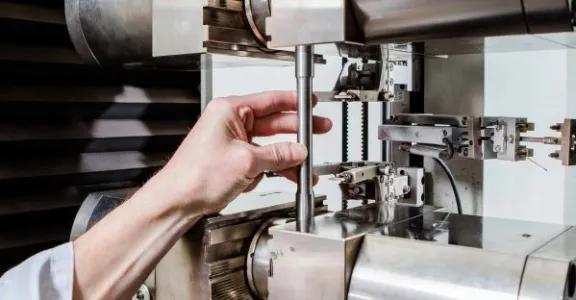Sirris investigated the quality habits of Belgian tech companies at the end of 2020. The survey shows that quality control is highly valued by many, but also that some others can still make great strides. For example, almost half of the companies surveyed do not make use of the potential of additional quality tests.
At the end of 2020, Sirris organised a survey among its customers and members, as well as via social media. The aim: to find out how many companies in the Belgian technology industry use quality control through testing and how. 144 companies participated in the relative and comparative study.
Over the years, quality control has become a priority for Belgian tech companies. Today, this mainly involves certificates. For example, about 7 out of 10 entrepreneurs always check whether their materials and components have the necessary certificates. Even better: more than half carry out additional quality tests. But that also means that almost half of them do not (yet) organise this and rely solely on certificates - or even leave out this form of quality control.
Preference for internal and external testing
The quality tests of tech companies focus mainly on end products. And both internal and external testing capacity is used. No less than 40 per cent does both, for different reasons. Entrepreneurs state, for example, that internal tests generate a faster turnaround time, promote internal knowledge building, allow better reporting and reduce costs. External testing, on the other hand, provides independent proof from an (accredited) partner and can compensate for a lack of in-house resources or expertise.
From quality reputation to risk management
The reasons cited by Belgian tech companies for conducting additional tests are positive. It is first and foremost an additional proof of quality for customers. Sometimes as an additional argument to promote the durability of products or as a guarantee of optimal functioning. In addition, there are other, more defensive reasons, such as previous quality complaints and the mitigation of risks, such as financial claims and image damage.
However, not all tech companies are in favour of additional quality tests: they slow down the go-to-market process and require a significant investment - a concern shared by those that do. What the costs exactly entail is less clear. More than 4 out of 10 companies that do not carry out quality tests think that labour costs are the main factor. Companies that have been using internal and/or external quality tests for some time are emphasising the price of the tests themselves. But whatever the cost, the question is: does the investment pay off?
ROI not to be underestimated
A direct return on investment (ROI) seems unlikely, and only 5 percent of the companies surveyed consider ‘increased sales’ to be a positive consequence of additional quality testing. But the indirect profits mentioned paint a very different picture: additional quality control is an effective way to position yourself as a quality player and increase customer satisfaction, while it can protect you from sky-high damage claims or lasting image damage. It is difficult to put a price on that.
|
Looking for an accredited partner for quality tests? With 70 experts, 35 years of experience and 1,100 test reports annually, our Testlabs guarantee high quality testing of adhesives, composites, plastics, 3D prints, metals and coatings, among others. More info via testlabs.sirris.be |




